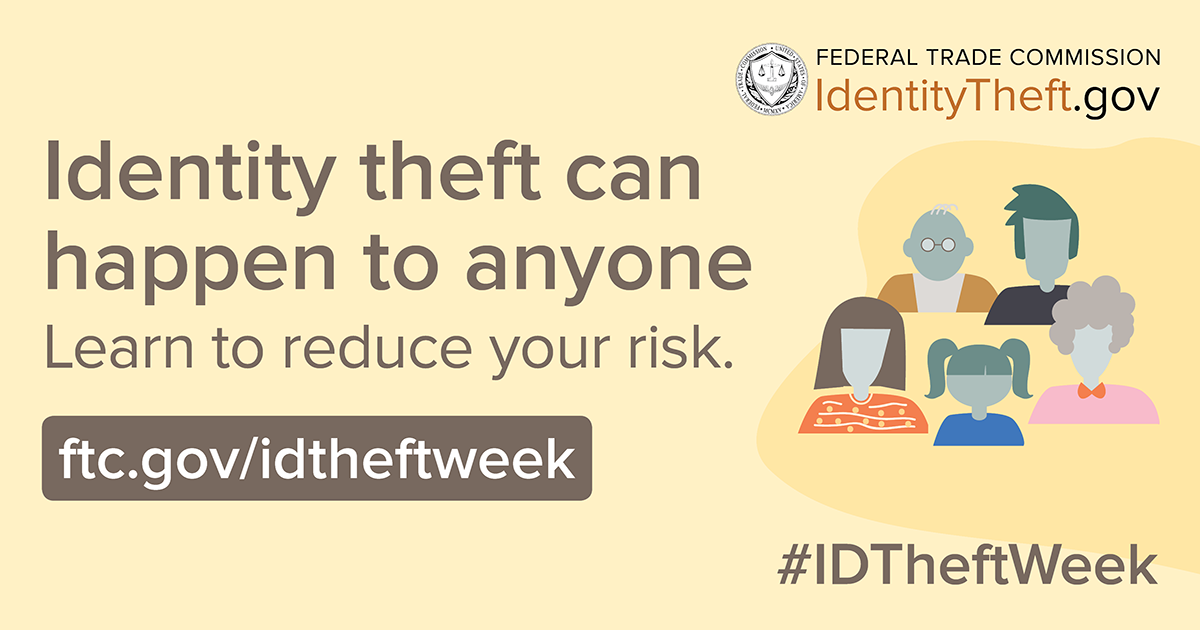 It’s the second day of Identity Theft Awareness Week and today we’re talking about steps that can help reduce your risk of identity theft.
It’s the second day of Identity Theft Awareness Week and today we’re talking about steps that can help reduce your risk of identity theft.
Many of us access our online accounts — credit cards, investments, insurance, or checking and savings accounts — nearly every day. In our digital world, bits of our personal information are everywhere. Identity thieves know this and look for ways — both high-tech, like lifting our passwords, or low-tech, like stealing our mail — to get their hands on our money and personal information.
Since identity theft can happen to anyone, here are some ways to keep your money and personal information safe.
- Protect documents that have personal information. Keep things with personal information — think financial records or Social Security and Medicare cards — in a safe place. Shred them before you throw them away. If you get statements with personal information in the mail, take your mail out of the mailbox as soon as you can.
- Don’t share your Social Security number with someone who contacts YOU. While some organizations might need your Social Security number to identify you, they won’t call, email, or text you to ask for it. So if someone contacts you, asks you for your Social Security number, and says they’re from the IRS, your bank, or your employer — it’s a scam.
- Protect your information online and on your phone. If you’re logging in to an online account, use a strong password. Add multi-factor authentication for accounts that offer it. Multi-factor authentication makes it harder for scammers to log in to your accounts if they do get your username and password.
- Review your bills. Charges for things you didn’t buy, or an unexpected bill, could be a sign of identity theft.
Remember to check out the free events and webinars each day of Identity Theft Awareness Week. And if you think someone has been using your personal information to open accounts, buy things, or file taxes, report it and get recovery help at IdentityTheft.gov.
